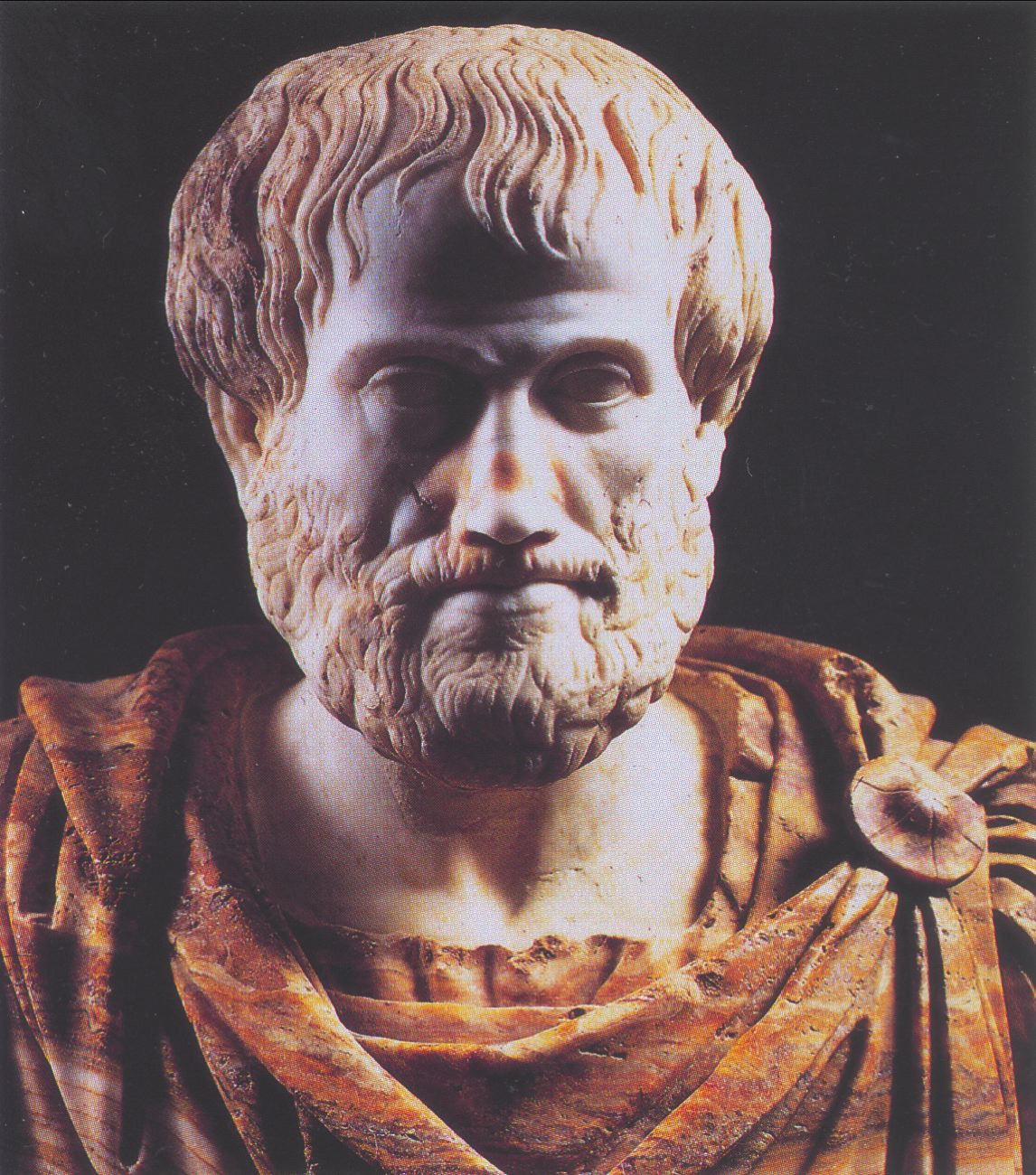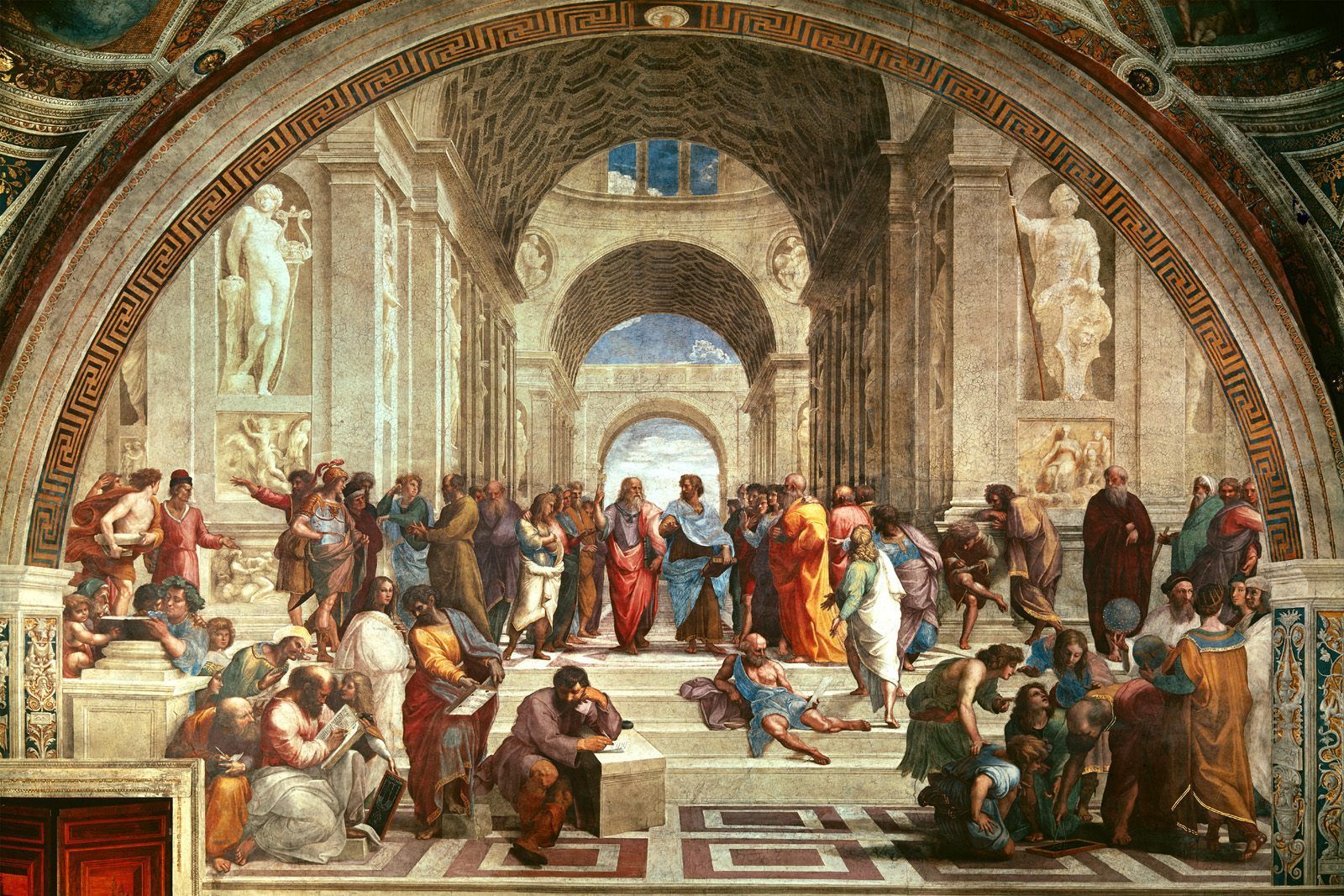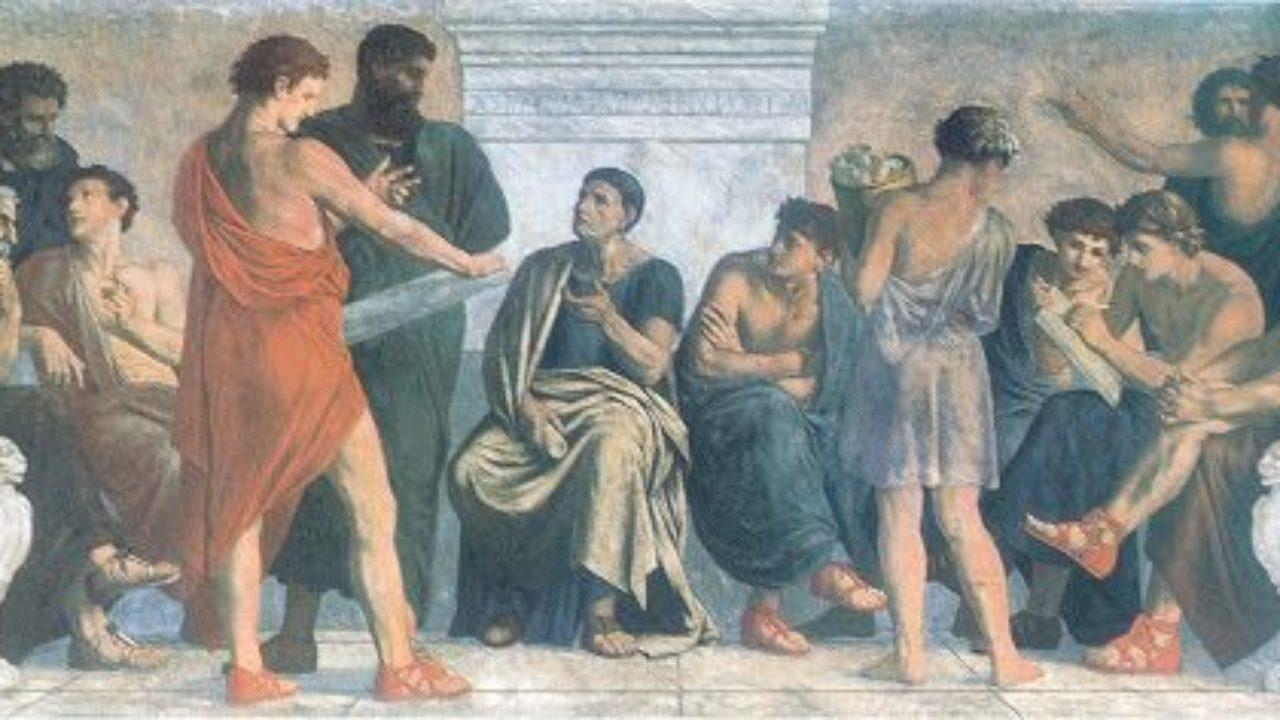All About Aristotle's discoveries, also known as the father of philosophy and is part of the most important scientists in all of history, are few details compared to all the information about Aristotle that we offer you right here.

Who was Aristotle?
Aristotle was a child who grew up under the influence of his father as an employee in the palace, he was born in 384 BC. C. in an ancient city of Macedonia, what we know today as Greece.
His parents died with him when he was very young, that is why he ended up in the care of his guardian Proxenus of Atarneo, who some suppose could have been the brother of one of his parents and he made the decision to transfer him to Athens, all this for that he be educated in what was the center of wisdom and knowledge in all of Greece at that time.
Aristotle studied at the Academy of Athens, which was considered one of the most important centers for the study of philosophy, science and the arts, it was founded in 387 BC. C. by Plato who was a pupil of Socrates and also became a teacher of Aristotle.
His time at the academy gave him a lot of knowledge, while he was able to train with the best philosophers of the time, both students and educators. Aristotle was the inspiration for the Contributions of Galileo Galilei, although this one was not very in agreement with the philosophy of the Macedonian.
However, he came to establish very close relationships with several people from the institute, among them there was a man who shared with Macedonio the discrepancy he had regarding the philosophy that was instilled in them by his teacher and founder Plantón.
Mainly this was what gave free rein to Aristotle's mind, allowing him to become the best philosopher in history, since he, being dissatisfied with the teachings he acquires, decided to form his own philosophy.
After the death of his teacher, he, like many other students, withdrew from Athens and went to the city of Aso, known today as Turkey, where he met Pythias, who was a close relative of Hermias, an old friend of Macedonio and would end up becoming his first wife and the mother of his firstborn.
Shortly after the death of his friend, Aristotle went to a city located on what is now known as the Island of Lebos, where he met his old companion Theophrastus and together they were instructed in biology, more specifically that of animals. terrestrial (zoology) and marine organisms.
He was strictly requested by the king of the place that was then his native town, to teach the royal family and become the tutor of what would one day be known as one of the best governors in all of Greece and other parts of the world, however, the philosopher aspired to much more, in such a way that he established his own doctrine in the establishment that he himself founded, known as the Lyceum.
This campus became known very quickly, however, it had some similarities with the other schools of the time, such as the fact that they taught classes and seminars in which they did not have to pay, they did this so that anyone in the city could go to study on some occasion regardless of the lack of financial resources to pay for the classes.
He married for the second time with who was his lover after the death of his wife, it is said that with this woman he conceived several children, however, the best known was Nicómaco to whom his father attributed his inspiration to write a series of ten books on ethics and virtue.
When he saw his life in danger due to the social controversies caused by the death of the ruler at that time, he went with his family to an island in Greece, where he died a year later due to a serious illness that is not known until now.
What did Aristotle study?
This is one of the most common questions about his training, since it is very important to know what studies he dedicated his life and knowledge to, however, we must emphasize that this man was not educated in a single branch of any science, since the magnitude of his understanding went so far that he was able to study in studies such as physics, astronomy, biology, politics and many other branches.
He was a very curious man, a faithful lover of knowledge, his ideology was based on the importance of education so that people could acquire the ability to analyze and question everything, not only in the search for knowledge but also for the absolute truth. , as long as it is reasonable.
What did Aristotle discover?
The Aristotle's discoveries even today they continue to give something to talk about, their methods of experimenting are still used and although some contributions have gone down in history, without a doubt, this man was an important influence for progress in his time and the expansion of knowledge in many study areas.
Aristotelian logic
This philosophy is based on the fact that the arguments made on a specific topic, analysis, study or situation are based on conjectures that can be proven by some method. For example; if the allegation of assault is based on substantiated physical evidence such as witnesses or video, then the statement must be true.
In studies such as philosophy, ideology, theology and other educational branches, the sense of sight and the ability to appreciate are not useful by themselves, since it is necessary to see much beyond what the common senses can distinguish, this means that certainty and reason hide behind what appears to be reality, that's why we must be objective in the face of adversity and reason properly before speaking.
Politics for Aristotle
For Aristotle, a leader fulfills a very important function in the leadership of a nation, since he is the person who leads the citizens to comply with a series of rules and designs that serve to guarantee the well-being of the human being.
Nowadays we all know that being a governor is not an easy job, they cannot just go through life imposing random orders according to what they want to dictate and they will never be able to please all their citizens, that is why nations need to be in charge of a person who is firm in his purposes and who is trained to be able to value the faculties of each person as an individual separately and as part of a community.
Contributions in Biology
The philosopher delved deeply into the world of biology, managed to make many comparisons between various organisms throughout his career, mainly animals, and this was what allowed him to start what is now known as the classification of organisms. the kingdoms of nature, by separating vertebrates and invertebrates into two groups.
His main objective for the classification of these species was to look for some advantage in the structure of each animal, to specify what each part of the subject's complexion served and how its anatomy compared with that of the other species.
Teaching methods
Aristotle said that memory is a vague projection of what was, we remember something that happened when we associate it with our present and in this process the mind projects images or sounds that are related to the moment that happened. This does not happen by accident and memory works in automatic mode, since our mind works faster than us and evokes memories even before we assimilate it.
However, memory gives us only glimpses of what could have actually been and does not show what happened exactly, the mind is even capable of manipulating or eliminating memories when they evoke moments of great stress and tension.
That is why not everything lived is in memory, since we are not remembering what happened always and in every moment that we live. If existence were based on living on memories, it would take us more than one lifetime to return to all the moments of our history, and this would not allow us to move forward.
The Importance of Habit
Aristotle believed that the key to success was perseverance, that according to what we get used to doing, the result we would obtain should be similar in quality and benefit. The habit is not simply a forced activity that we execute automatically, it means training ourselves so that this is one more step to achieve our goals.
"We are what we repeatedly do. Excellence, then, is not an act; It is a habit". Aristotle
The cientific method
He taught that the main aspect to be used in an investigation was observation, that the best way to understand any idea or hypothesis is with verifiable facts and that could be obtained through tangible studies, not only theories based on irrational thinking of « what could be if…”
He also instructed that we must be curious, the questions that can result in a study help us to understand in depth the subject under investigation. All the results obtained must be able to be reasoned and discussed, so that if someone else does not agree with the outcome, this person can use the scientific method to verify their own theory.
the earth is not square
Although he was not the first to deal with the theory that the earth was round, he was the first to corroborate his arguments with tangible evidence and at the same time, he was able to give a brief idea about the existence of gravity on earth and the magnetic field by composition of the earth's core.
Contributions to Science
It is very true that the disadvantages that the philosopher had by not having the valuable tools that we have today were many, they even hindered him in his work and made it possible for him to reach conclusions that many years later were denied, however, this does not It implies that his work has been useless, quite the opposite, since these errors only made all his theories that could be confirmed gain value and strength over the years.
Aristotle and his Inventions
The Aristotle's inventions they revolutionized the research and teaching of the scientific and social branches, they are a clear example of reason and understanding. Here are the most important inventions of his:
Relationship between matter and form
Aristotle shaped the definition that gives meaning and importance to the soul, he argued that the body is nothing without the spirit and that this is what marks a boundary between the dead and the living. The soul is the breath, it gives us the will to carry out actions and connected with the body is what makes it function of the human being.
It is proven that the body without the soul is nothing more than food for the earth, however, it has not yet been possible to confirm what the soul is without the body, there are many theories and hypotheses regarding this, but even today today there are no methods to corroborate any of these.
Binomial Classification System
He devised a way to classify the different species of organisms into various divisions so that they are not confused with each other and that no species shares the same name. There are millions of different species around the world, and confusion in common names is normal due to the difference in languages and the translation that a name has from one lexicon to another.
formal logic
It is a revolutionary method in many branches of science, it serves to distinguish reason through comparative logic, in which we can take two results to compare them and obtain another conclusion based on these two proven facts.
empiricism
It is known as the philosophical movement where wisdom is obtained through experience, which is precisely where the term comes from. Aristotle was not the only philosopher to deal with this ideology, however, it is easy to differentiate him from other authors, since each thought is based on a specific experience.
Aristotle believed that science and all branches of knowledge could not simply come out of nowhere, as can happen with theology for example, he believed that in addition to every fact should be verified, it should also have a solid foundation and what better Based on experience, this can give a testimony of why a theory is correct.




